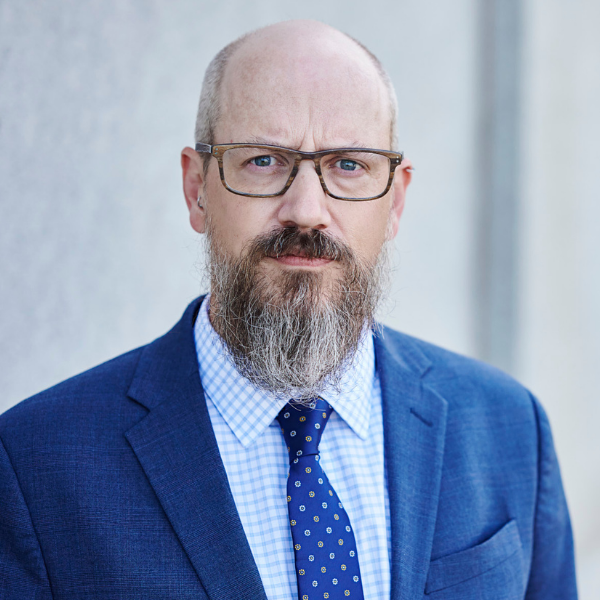Ontario Attorney General Doug Downey’s recent suggestions on overhauling judicial appointment process are misguided, argues Michael Spratt
Ontario’s judicial appointments system is not broken, although Ontario Premier Doug Ford’s attorney general, Doug Downey, seems to be trying his best to destroy its credibility. Downey, you see, is attacking the current process because he thinks we should give him more latitude in appointing his preferred judges.
No thank you.
Even before Downey’s remarks to the Federation of Ontario Law Associations, when he first publicly mused about overhauling the judicial appointments process, there were rumours that the Double Ds — Ford and Downey — were unhappy that their efforts to appoint friends and loyalists to the bench were being stymied.
Nepotism, it seems, is the Ford government’s preferred way of doing business.
Long-time Ford family friend and ally Ron Taverner was handpicked by the premier as the next Ontario Provincial Police (OPP) commissioner. The only problem was that Taverner was not qualified for the job because his rank was too low. Ford’s solution was to water down the job requirements. Publicly, the government claimed the reason for the lower application standards was an insufficiently broad pool of candidates for the commissioner job. In reality, it was so Ford could appoint his unqualified friend. As former OPP commissioner Chris Lewis put it, the fix was in from Day 1.
And this summer Doug Ford’s chief of staff, Dean French, resigned in the wake of damning reports that multiple plum patronage appointees had close ties to French. The criticisms of Ford and French were so hot that the premier promised he would review all “pending appointments,” including those made by long-time Dean French friend Andrew Suboch, who had been appointed as chairman of Ontario’s Justices of the Peace Appointment Advisory Committee.
Though he ultimately resigned, Suboch’s appointment to such a powerful position should have raised eyebrows in the first place given that he was previously found to have engaged in professional misconduct and acted “without integrity” by the Law Society of Upper Canada (now the Law Society of Ontario) in 2012.
There can be no trust or goodwill when it comes to the Ford government and any appointment process.
So, it should come as no surprise that Downey’s stated reasons for changing how we appoint judges simply don’t add up.
Downey has said that his main concerns are that judicial vacancies are not being filled fast enough and that not enough qualified candidates are being identified.
In fact, the Ford government has appointed over 20 new judges — a rate not much different than that of previous governments. And the government’s own website lists no judicial vacancies in the province.
In reality, there are plenty of qualified judicial applicants. I have appeared hundreds of time in the Ontario Court of Justice and there can be no complaint about quality of the judiciary there. The bench strength in the OCJ can match any level of court in Canada.
I was also on a list of lawyers who provided confidential feedback to Ontario’s Judicial Appointments Advisory Committee (JAAC), which is charged with preparing a shortlist of applicants’ names for the attorney general’s consideration, and there were routinely dozens of the province’s best lawyers on those lists.
The problem is not an insufficient number of qualified candidates, but that Downey and Ford want to choose their partisan friends who are not otherwise making the cut.
For the past 30 years the JAAC, comprised of two judges, three lawyers appointed by legal stakeholders, a member of the judicial counsel, and seven non-lawyers appointed by the attorney general, has provided excellent guidance in appointing judges. The judicial application questionnaire, unlike the application process to become attorney general, is substantive and easily weeds out pretenders.
The JAAC has been the bulwark that has prevented the U.S.-style politicization of the justice system. The JAAC has resulted in some of the finest judicial appointments in the country and a criminal justice system that Ontarians can trust to be free from petty political interference.
The vibrancy of our democracy is built on the pillars of our justice system; and that only has strength when it has integrity.
Downey and Ford risk undermining an important democratic pillar so that they can, as they have in the past, elevate and promote their friends.
Last week on TVO’s The Agenda, Downey let his mask slip. He said he wanted to be able to pick judges who reflect the same values he has. Those values appear to be cruelly cutting legal aid; restricting access to justice; embracing the notwithstanding clause; talking tough on crime; and patronage.
This is why Downey and Ford want to fix what is not broken.
As newly elected Criminal Lawyers’ Association president John Struthers said recently, “If it ain’t broke we can only conclude someone wants the fix to be in.”











